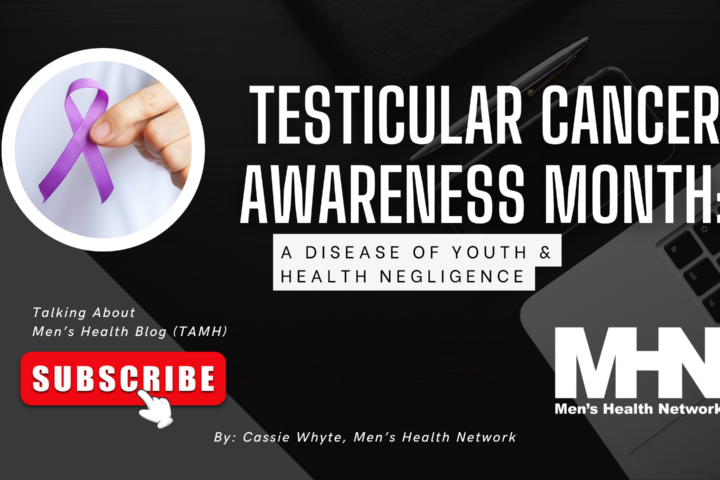Well, here we are again, the last few weeks of the year. Those weeks that include Thanksgiving, Christmas, and New Year’s—collectively called “the holidays.” If you’re reading this article, it means that you have survived the last two years – which have included an election, social unrest, and oh that darned pandemic! Instead of enjoying time with family and friends, we have been “socially distancing” to the point of watching commercials that feature an electronic wrap that can give a person a virtual hug, and wondering “Where can I get one of those?”
This year has been spent listening to reports of labor and product shortages, higher gas prices, and uncertainty on every corner.
Is it any wonder that you or someone you know is struggling to find that “joy to the world”?
The fact is, instead of seeing visions of dancing sugar plums, we’re questioning who we will really see and spend time with during “the most wonderful time of the year.” Issues to consider include questioning who has been vaccinated, who chooses not to, risks of getting the virus, or do you use extra caution, do you travel, or have guests over, are just a few of them.
Holiday depression—also called the “holiday blues”—is a real thing, and it can last long after the holidays. Sometimes this can lead to suicide. The Veterans Health Administration (VA) stated that in 2019 the Veteran suicide rate in Nevada was higher than the National suicide rate, and higher than the National suicide rate among non-Veterans. The VA’s state-level data can be found here.
https://www.mentalhealth.va.gov/suicide_prevention/data.asp
To that end, the VA has identified three priority areas across Community Based Interventions that have proven effective in reducing, and preventing suicide.
The first is to identify Veterans, service members, and their families, and screen for suicide risk. That can be as simple as having a conversation with someone that you have observed to have a recent major shift in their mood or behavior, and merely asking them if they have thought about hurting themselves.
The second is to promote Connectedness and Improve Care Transitions. We all can attest to how being connected has been adversely impacted the past couple of years, and how we have had to adjust how we make it happen. Some are still struggling with finding new ways.
The last area is to increase Lethal Means Training, and Safety Planning. An example is increasing gun safety measures such as putting time between emotional outbursts or reactions, and access to lethal weapons.
The U.S. Department of Veterans Affairs Office of Mental Health and Suicide Prevention. National Suicide Prevention Annual Report: 2021 National Veteran Suicide Prevention Annual Report (va.gov)
Holiday depression affects one million people every year. Men and women, young and old, all fall victim to feelings of sadness, loneliness, anxiety, guilt, and fatigue during this emotionally charged season.
Men’s Health Network offers the following 11 suggestions to help you identify and ward off—or at least better cope with—potential sources of holiday depression.
- Acknowledge that you’re hurting – Others may expect certain attitudes and behaviors from you that you may not feel. The retail industry’s “holiday hype” presents an overly sentimental, nostalgic, and even imaginary notion of the holidays (usually to try to sell you something). Sill, feelings of sadness, loneliness, or depression don’t automatically vanish just because it’s the holidays. Acknowledge your pain, be open and honest with others, refuse to feel guilty, and get help if necessary. It’s ok to laugh! Don’t be afraid! You won’t be struck by a bolt of lightning for laughing! Remember, a closed mouth won’t get fed!!
- Have a plan to deal with your feelings – Try to surround yourself with people who care about and support you—family, friends, or church members. Invest yourself in an exercise program (aerobic activities such as walking, running, cycling, etc., are recommended because of their mood-elevating ability). If necessary, see your doctor or therapist. And learn to say “no.” Others’ expectations are not a reason for your own mental health to suffer.
- Set realistic expectations – Keep your expectations realistic rather than perfectionistic. Prioritize and reduce self-imposed holiday preparations. Delegate responsibilities. Realistically plan your budget, spending, and shopping. Do less and enjoy more. Obsessing over endless details is bound to change this long-awaited, once-a-year season from a time of exuberance to one of exhaustion. Make it a point to be honest with yourself, and if necessary and possible, limit the time and situations/people you want to be around. When you’ve had enough of either, make sure that you have a way to leave or step away.
- Take time for yourself – Why is it called holiday depression? Because, for most people, these feelings don’t occur at other times of the year. Remind yourself of what you enjoyed during the previous months, then continue them during the holidays. Make yourself a priority! Instead of a “Discount Double Check,” give yourself an “Emotional Double Check”. Give yourself permission to feel what you feel. Just don’t stay there too long! Getting enough rest, eating and drinking in moderation, exercising, and continuing other favorite activities can maintain normalcy, routine, control, and predictability.
- Consider that your depression may actually be caused by this time of year – Seasonal Affective Disorder, or SAD, occurs because of reduced exposure to sunlight—which is just what happens during the holiday season when daylight hours are shorter. Check with your doctor to see if light therapy might be beneficial for you.
- Help others – Soup kitchens, homeless shelters, nursing homes, churches, and scores of other organizations can always use volunteers, especially at critical times of the year. Additionally, you’ll benefit from the company of other people around you rather than being alone. And, help others help you! Tell those who care about you what you do or don’t need from them. They often don’t know how to help, or what to say, but want to.
- Bury the hatchet – Perfect families don’t magically appear during the holidays, but family conflicts can. “Letting go” and forgiving can help heal past wounds. Additionally, family feuds can even be deliberately set aside until after the high-tension holidays in order to facilitate the peace and enjoyment of everyone at this special time.
- Start your own traditions – Both families and traditions change with time. (Every tradition had to start somewhere!) Rather than reminiscing over the “good old days,” accept the fact that change may be necessary, grasp the season as it is now, look forward to the future, and create your own family traditions that can be enjoyed and even preserved for future generations. This is the year of “Zoom” meetings, parties, and other gatherings. They are much cheaper, safer, and easier to organize than traveling. All you need is a webcam and internet access.
- Keep your alcohol intake low – Don’t pour gasoline on a fire. Remember, alcohol has a depressive effect on your nervous system, so if you’re experiencing the holiday blues, drinking too much alcohol will only worsen your depression.
- Rededicate yourself to your spirituality – The “reason for the season” is often swallowed up by maddening materialism that can distract from the history, meaning, and significance of holiday celebrations. Step back, slow down, and refocus on transcendent, eternal matters. Rededicate yourself to spiritual pursuits, such as church attendance, church work, prayer life, and other disciplines. Regain the focus originally intended by this time of year.
- Every day, Veterans who served in the Army, Marine Corps, Navy, Air Force, and Coast Guard connect with proven resources and effective treatments for depression and find solutions that improve their lives. It can be difficult to handle depression on your own, so talking to your family and friends can be a first step. You can also consider connecting with:
-
- Your doctor. Ask if your doctor has experience treating Veterans or can refer you to someone who does. If you feel comfortable enough with your physician, he or she may be able to help you find tools to manage loss of interest or pleasure even without direct experience with Veterans.
- A mental health professional, such as a therapist
- Your local VA Medical Center or Vet Center. VA specializes in the care and treatment of Veterans.
- Your local VA Medical Center or Vet Center. VA specializes in the care and treatment of Veterans.
A spiritual or religious adviser
Helplines:
SAMHSA – Substance Abuse & Mental Health Services Administration
800-662-HELP (4357) www.samhsa.gov
Veterans Crisis Line 1-800-273-8255 then press 1
www.VeteransCrisisLine.net
National Suicide Prevention Lifeline 800-273-TALK (8255)
www.SuicidePreventionLifeline.org
= = = = = = = = =
Sources:
Healthy Men https://HealthyMen.org
Men’s Health Resource Center https://www.MensHealthResourceCenter.com
Mental Health Home (va.gov) https://www.mentalhealth.va.gov
Mental Health America https://www.mhanational.org
Men’s Health Network https://www.MensHealthNetwork.org
NAMI National Alliance on Mental Illness https://nami.org
ULifeline.org – Online resources for students www.ulifeline.org
Your Head: An Owner’s Manual wwwYourHead.org




